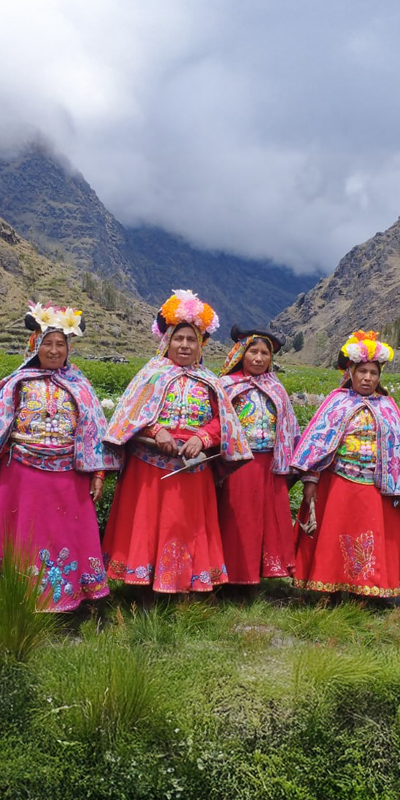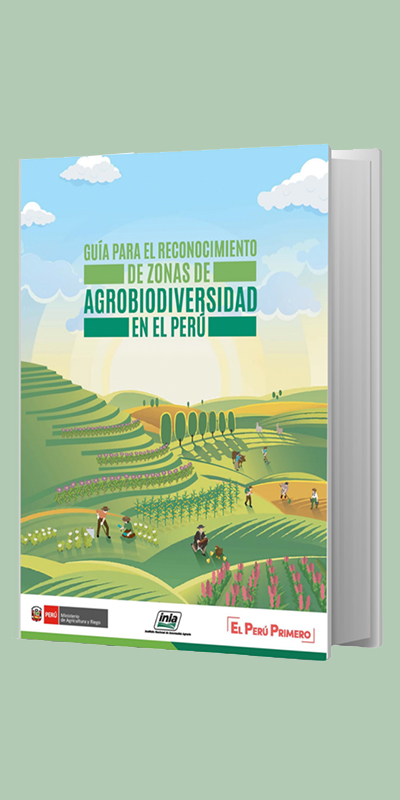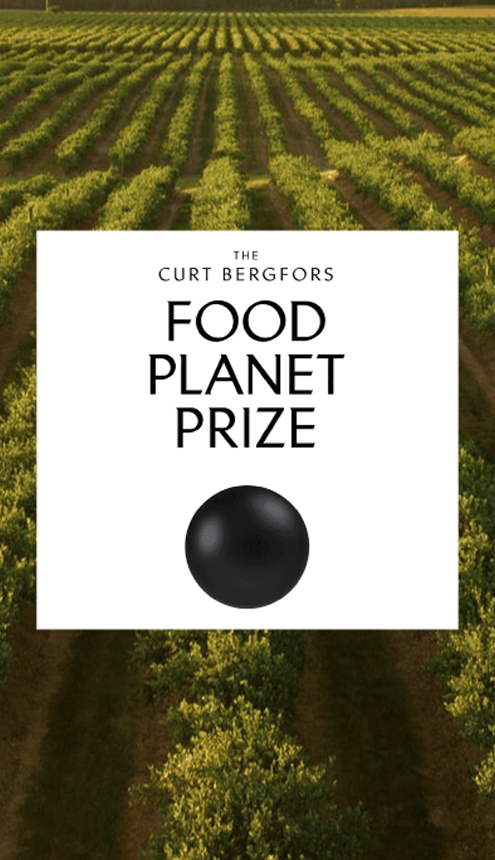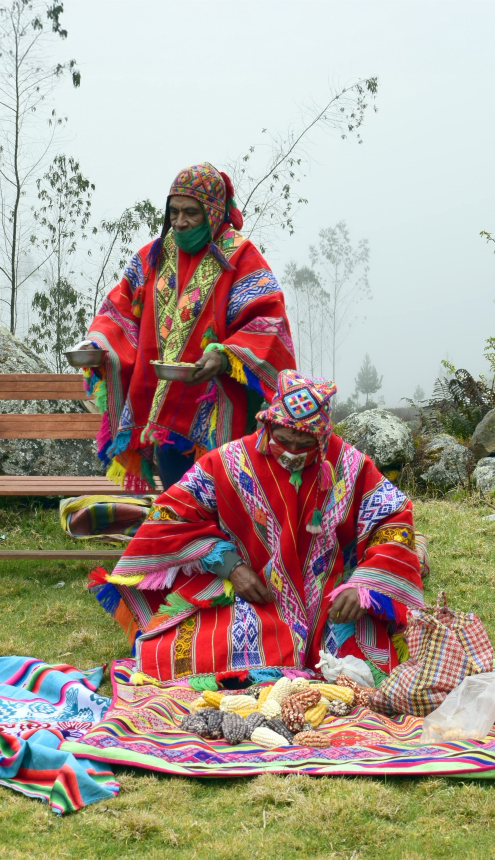
NATALIA ESTRADA CARMONA: CAMBIANDO EL MUNDO CON DATOS
La colombiana radicada en Francia, junto con Sarah Jones, ha creado un sistema que permite medir datos de agrobiodiversidad, que les hizo merecedoras del Food Planet Prize 2023.

La colombiana radicada en Francia, junto con Sarah Jones, ha creado un sistema que permite medir datos de agrobiodiversidad, que les hizo merecedoras del Food Planet Prize 2023.
Escribe Daniel Quintero (IG @danielquintero)
Los científicos coinciden en que la agricultura mundial está perdiendo una diversidad crucial, en sus plantas, animales, microorganismos y su conexión cultural. Pero no se puede solucionar un problema que no se mide adecuadamente. Ahí es donde entra en juego el Índice de Agrobiodiversidad.



Natalia Estrada Carmona creció en el seno de una familia de caficultores en Medellín, Colombia, en los tiempos de la más cruenta violencia. Su trabajo la hizo mudarse a Montpellier, Francia, desde donde aplica sus conocimientos científicos en biodiversidad agrícola trabajando con la Alliance of Bioversity International y el Centro Internacional de Agricultura Tropical (CIAT), “Cuando se trata de especies alimentarias, ni siquiera sabemos lo que estamos perdiendo; hay una pérdida de insumos y de la cultura sobre cómo usarlos”. Con esta realidad en mente Natalia y el grupo que colidera junto con Sarah Jones crearon una herramienta que permite «hacer visible lo invisible»: el Índice de Agrobiodiversidad
El trabajo de Natalia, Sarah y la Alianza ha sido un verdadero hito en la medición de la agrobiodiversidad, clave para enfrentar las crecientes pérdidas en la agricultura a nivel mundial. “En 2023 tuvimos el honor y la responsabilidad de ganar Food Planet Prize por el potencial transformador de los sistemas alimentarios”. Este sistema integra diversas bases de datos, provenientes de más de 20 disciplinas como la nutrición, la agronomía y la genética, para contar una historia coherente y relevante para la sostenibilidad del planeta.
Natalia subraya la urgencia de mejorar la recopilación de datos a nivel local. Gracias a su trabajo, ahora se está generando evidencia científica sobre cómo la agrobiodiversidad puede ser un catalizador en la creación de dietas más saludables y resilientes, lo que ya está siendo implementado en países como Zambia, India y Perú.
Además, colaboran con iniciativas como las zonas de agrobiodiversidad en Perú, apoyando su monitoreo técnico para asegurar un impacto duradero en colaboración con el Inia y Midagri. «Necesitamos tener más datos de alta resolución que permitan a los gobernantes tomar decisiones más contundentes», destaca Estrada Carmona, reafirmando la importancia de un esfuerzo global en pro de la biodiversidad.
El trabajo de Natalia y su equipo no solo ha revolucionado la manera en que entendemos y medimos la agrobiodiversidad, sino que también nos ha mostrado el inmenso potencial que tiene para asegurar un futuro más sostenible y saludable.
Su visión demuestra que con las herramientas adecuadas, es posible revertir la pérdida de recursos vitales para las generaciones futuras.
Pueden ver la entrevista completa a Natalia en el Reel colgado en el Instagram de @plataformalahiguera. – El Food Planet Prize de la fundación Curt Bergfors otorga cada año 2 millones de dólares a proyectos que busquen cambiar el mundo desde la alimentación.

Words by Daniel Quintero (IG @danielquintero)
Scientists agree that global agriculture is losing crucial diversity in its plants, animals, microorganisms, and cultural connections. However, this problem cannot be solved without proper measurement. This is where the Agrobiodiversity Index comes into play.



Natalia Estrada Carmona grew up in a family of coffee growers in Medellín, Colombia, during times of the most brutal violence. Her work led her to move to Montpellier, France, where she applied her scientific knowledge of agricultural biodiversity, working with the Alliance of Bioversity International and the International Center for Tropical Agriculture (CIAT). «When it comes to food species, we don’t even know what we’re losing; there is a loss of resources and the culture of how to use them.» With this reality in mind, Natalia and the group she co-leads with Sarah Jones created a tool that allows for «making the invisible visible»: the Agrobiodiversity Index.
The work of Natalia, Sarah, and the Alliance has been a milestone in measuring agrobiodiversity, the key to facing the growing losses in agriculture worldwide. «In 2023, we had the honor and responsibility of winning the Food Planet Prize for the transformative potential of food systems.» This system integrates various databases from over 20 disciplines, such as nutrition, agronomy, and genetics, to tell a coherent and relevant story about the planet’s sustainability.
Natalia emphasizes the urgency of improving data collection at the local level. Thanks to her work, scientific evidence is now being generated on how agrobiodiversity can catalyze healthier and more resilient diets, which are already being implemented in countries such as Zambia, India, and Peru.
Additionally, they collaborate with initiatives like the agrobiodiversity zones in Peru, supporting their technical monitoring to ensure lasting impact in collaboration with INIA and MIDAGRI. «We need more high-resolution data that allows decision-makers to take more decisive actions,» Estrada Carmona highlights, reaffirming the importance of a global effort in favor of biodiversity.
Natalia and her team’s work has revolutionized the way we understand and measure agrobiodiversity and shown us its immense potential to ensure a more sustainable and healthier future.
Her vision demonstrates that with the right tools, it is possible to reverse the loss of vital resources for future generations.
You can watch the full interview with Natalia in the Reel posted on the Instagram account of @plataformalahiguera. – The Curt Bergfors Foundation’s Food Planet Prize awards $2 million yearly to projects that aim to change the world through food.
La patria se saborea incluso a la distancia. Y como la buena mesa nos acerca a quienes estamos lejos, aquí les compartimos más de 15 lugares de cocina peruana en la capital española.
Leer másArte, gastronomía y la más profunda tradición en las islas San Andrés, Providencia y Santa Catalina.
Leer másLa periodista Argot Murelius nos recomienda dónde comer y beber más allá del bullicio de la ciudad que será sede de los World’s 50 Best Restaurants.
Leer más